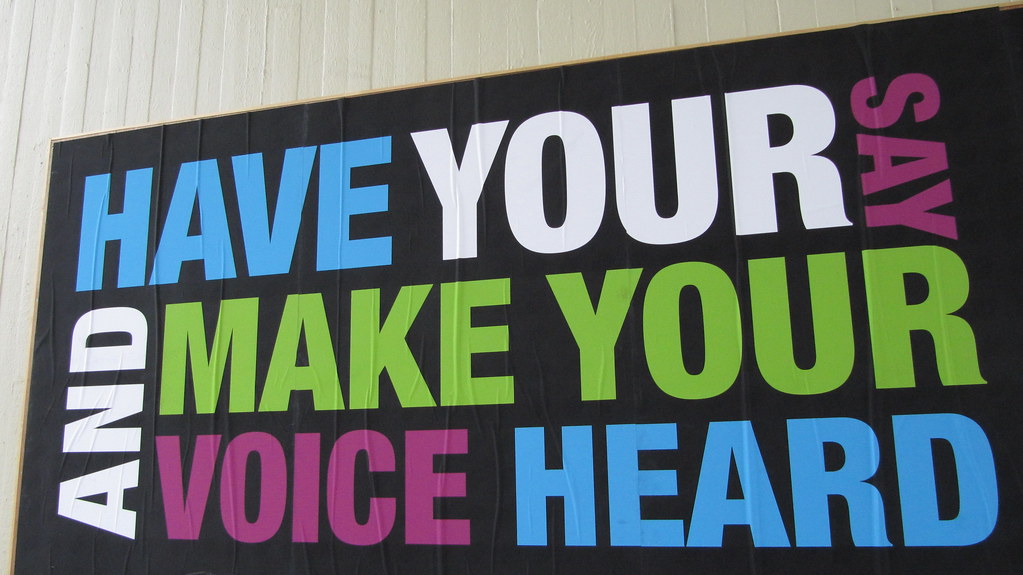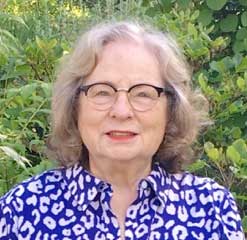Opinion: In A Democratic Society, The Public’s Voice Must Be Heard

Photo: flckr.com. (CC BY-SA 2.0)

The Woman’s right to choose motherhood is a basic foundation of a free society. The patriarchy prefers women voiceless and so busy doing domestic work in the home that they have no time to get in the way of the grand plans of the powerful. Having a voice in one’s own future, believing that children are a blessing, not a curse, that every child deserves to be wanted, loved, and cared for, and not a primal punishment for Eve’s dangerous quest of knowledge, underlies ALL democratic societies. Forced childbirth is an abomination.
Just as women’s voices must be heard, so does the public deserve to be listened to. The non-expert, those not in power, those in fact affected by the plans of the chosen leaders, have a right to ask questions and to be heard. Yes, public comment can slow down “progress,” can make plans more expensive to carry out, can be a lot of trouble. But without it you have the kind of efficiency we have long associated with fascistic governments. The trains may run on time, but who is on those trains? And where are they going?
So too, free women can be a lot of trouble. It’s easier to suppress our voices, tell us we don’t understand the grand picture, are too responsive to people, feelings, families, neighborhoods, are too emotional, not efficient and logical. But justice requires that we be part of the decision, that our voices and concerns be part of the plan. Many wish that we would just shut up and let the powerful and knowledgeable carry on. But that is not good for the individual nor for society. Someone must always be free to tell the emperor he has no clothes.
So although I am, and because I am, a democratically elected Town Councilor, I seek public comment. I see it as part of my job to alert the public, those in my district, those affected by the plans. Public comment is a right, not a privilege. This essential outreach is how local government can be more than the plans of the powerful to achieve their own ends, making their own fortunes sometimes at our expense. We need them and they should need us. Only when balance is achieved can we have progress that is fair, effective, and democratic. Free women, a free society takes more time and work but is worth it.
Dorothy Pam is an Amherst Town Councilor representing District 3

I completely agree that in a democratic society a public’s voice must not only be heard but also listened to and included in decision making. There are countless things the town and council could do to make this more of a reality in Amherst. Off the top of my head, three ideas include: 1) providing clear process maps ( easy to access on the web!) of how key decisions are made and when public input is most important AND then scheduling ways for the public to provide input in meaningful ways – i.e., not 3-minute speeches but discussions, ways to really understand each other 2) standardizing how councilors get information out to their residents about meaningful input opportunities or even better, providing quick ways to collect their input directly – i.e., quick email surveys, office hours (which I know some councilors do) and 3) utlizing the many, many resident committees this town has in more effective ways by giving them clear charges that include ways to engage with residents and bring that back to the council. I use to joke that you needed a Ph.D. in public commenting to figure out how to make a public comment, and I was only half kidding. The one time I went to try and comment at town meeting the public comment period got cut off, but even pre-COVID there were a few times I tried to come give public comment at council or school committee only to learn that the meeting had started early or that there was some list in the corner that I didn’t realize I needed to sign up for. More problematic – there is no room for discourse or correction during public comment. People are able to share opinions as facts and provide incorrect statements about what the council has or has not done on a given issue. Beyond the relatively small number of people who can follow the council or school committee closely, the only way people learn about making a public comment on a key issue is through email lists and word of mouth, and 9 times out of 10 it seems that those calls for public comments are not actually aligned with real decision points, in part because the agendas are often vague and the process is not clear. This irritates people who don’t know of other ways to have their voices heard, and rightfully so. If we are resting our hopes for democracy on public comment I am very, very concerned. We can do so much better.
Thank you Dorothy Pam and thank you Laura Draucker. I agree!
A more vibrant and robust democracy would make room for discourse and correction during public comment, and create regular opportunities for dialogue as well as questions and answers. It is incredibly frustrating to be restricted to three minutes at the end of a meeting, with no response and usually no follow up. It’s just venting into the ether and leaves the public feeling dejected, powerless, and despondent.
Part of the the eradication of citizen input resultant from the charter commission’s governing change was a dog bone included: a ‘community engagement officer’ or some other nomenclature used then. I see the above sorts of functions with that role. BTW: email is not enuff. Altho semi-retired I know of the busy life of 2 income providers, home ownership and child/youth rearing. It is a busy life, staying abreast of more than an issue or 2 is difficult. This role needs full service for Amherst to be truly transparent, government to the max, engage Amherst, and other phrases used as possibility indicators. Not asking to be spoon fed here, just further communication of the pressing items, their current development, possible trends for the future. An informed citizenry is a major component of origination democracy. Monthly / quarterly submission of Bds, Commissions, Committee write up of such published? Without some sort of expansion here (my 25 yrs residence in Amherst has witnessed the “not enough communication” refrain applied to within those boards, between government and citizen, between boards and boards) I fear restriction of decisions to just a handful of the same people over and over. I have lived through that in other parts of the country. It is not a pretty sight…
Chad Fuller